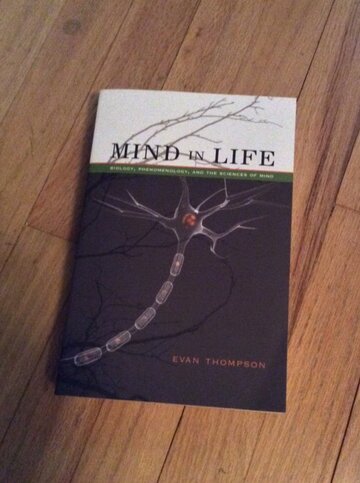Michel Bitbol on "Pure experience, from Zen to phenomenology"
Michel Bitbol is Director of research at CRNS, Paris, currently based at the Archives Husserl, a center of research in Phenomenology.
MICHEL BITBOL PHILOSOPHIE DE LA PHYSIQUE
Published on Aug 24, 2014
Reaching back to pure experience, below the level of the fabrications, judgments, and conceptualizations of ordinary consciousness, was Nishida Kitaro’s expression of the heart of Zen practice. The main thrust of this philosophical expression was its ability to overturn the usual schemes of the theory of knowledge, thus going beyond the circle of Zen and questioning some of the dearest presuppositions of the Western science of nature.
The most central presupposition of science, perhaps, is that objectivity is universal.
This does not only create a blindspot in knowledge, but also forces one to ignore it. Several strategies were accordingly adopted in the West to overcome this ignorance.
One of them is Phenomenology, with its project of stripping the layers of interpretation by way of a complete suspension of judgment (epochè), and evaluating any claim of knowledge from such a basis of “pure consciousness”. Another one is pan-experientialist metaphysics, that puts back pure experience in the very domain that was deprived of it by the act of objectification. I will compare these various approaches of pure experience, thereby establishing a hierarchy of radicality between avoiding the blindspot from the outset and compensating for it retrospectively.
Suggested readings: Online papers, “Is Consciousness Primary?”, NeuroQuantology, 6, 53-71, 2008
http://michel.bitbol.pagesperso-orang..., “Neurophenomenology, an ongoing practice of/in consciousness”, Constructivist Foundations, 7(3), 165-173, 2012
http://www.univie.ac.at/constructivis...
Michel Bitbol is Director of research at CRNS, Paris, currently based at the Archives Husserl, a center of research in Phenomenology.
He successively received his M.D., a Ph.D. in physics, and an “Habilitation” in philosophy in Paris. He first worked as a research scientist in biophysics from 1978 to 1990 and from 1990 onwards, turned to the philosophy of physics. He edited texts by Erwin Schrödinger, and developed a neo-Kantian philosophy of quantum mechanics for which he received an award from the "Académie des Sciences Morales et Politiques" in 1997. Subsequently, he focused on the relations between the philosophy of quantum mechanics and the philosophy of mind and consciousness,
working in close collaboration with Francisco Varela. He is presently developing a conception of consciousness inspired from neurophenomenology and an epistemology of first-person knowledge. He has over 130 publications including Schrödinger's philosophy of quantum mechanics, 1996, Physique et philosophie de l’esprit, 2000, and De l’intérieur du monde, 2010, in which he draws a parallel between Buddhist dependent arising and non-supervenient relations, in quantum physics and the theory of knowledge.
MICHEL BITBOL PHILOSOPHIE DE LA PHYSIQUE



